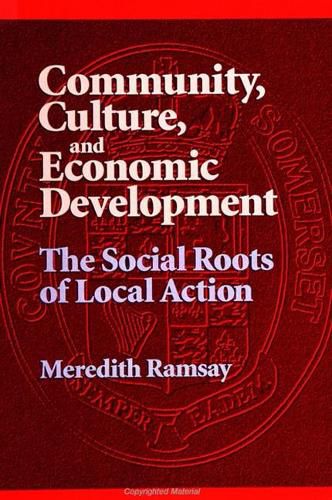Readings Newsletter
Become a Readings Member to make your shopping experience even easier.
Sign in or sign up for free!
You’re not far away from qualifying for FREE standard shipping within Australia
You’ve qualified for FREE standard shipping within Australia
The cart is loading…






This book questions the conventional wisdom in studies of local economic development that communities will invariably pursue outside investment as a way of increasing land values and creating jobs and opportunities. Meredith Ramsay demonstrates how two towns in Maryland’s poorest county have routinely rejected economic development, and in a further challenge to the dominant paradigm, she shows that these rejections were rational : Opposition to economic development was a reasonable means of protecting and achieving community values. Contrary to the market paradigm, Ramsay shows how the goals of economic policy are ultimately derived from cultural values and ways of life. By showing how the insights of cultural studies can be integrated with political economy, this book reveals the contextual character of economic rationality and, at the same time, illustrates how nonmaterial values can guide economic policymaking.
$9.00 standard shipping within Australia
FREE standard shipping within Australia for orders over $100.00
Express & International shipping calculated at checkout
This book questions the conventional wisdom in studies of local economic development that communities will invariably pursue outside investment as a way of increasing land values and creating jobs and opportunities. Meredith Ramsay demonstrates how two towns in Maryland’s poorest county have routinely rejected economic development, and in a further challenge to the dominant paradigm, she shows that these rejections were rational : Opposition to economic development was a reasonable means of protecting and achieving community values. Contrary to the market paradigm, Ramsay shows how the goals of economic policy are ultimately derived from cultural values and ways of life. By showing how the insights of cultural studies can be integrated with political economy, this book reveals the contextual character of economic rationality and, at the same time, illustrates how nonmaterial values can guide economic policymaking.